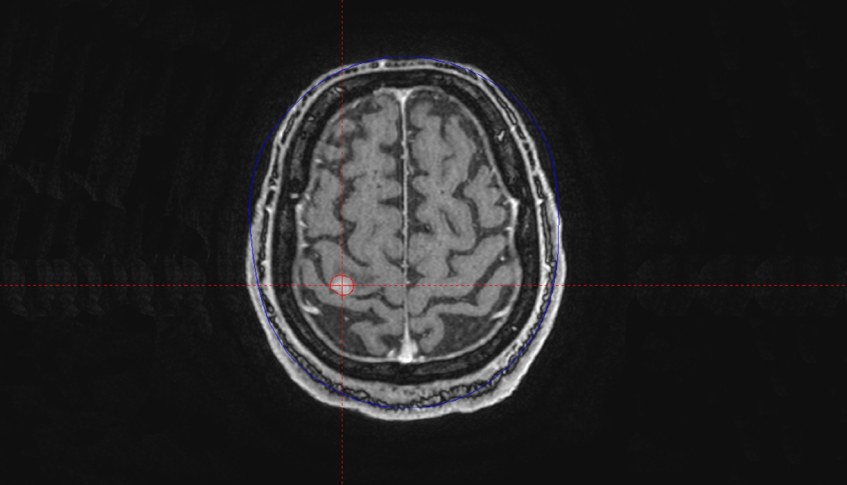Metastases in the brain cause death within weeks to a few months if left untreated. Cortisone provides quick relief from acute symptoms caused by swelling of the brain (intercranial pressure). Epileptic seizures triggered by the metastases can be controlled with antiepileptic drugs.
There are four therapy options for treating brain metastases:
- Microsurgical removal (surgery)
- Skull irradiation
- Chemotherapy or immunotherapy
- Radiosurgery (Gamma Knife)
Any of these procedures may be equally suitable depending on the type, size, number, and location of brain metastases. Hence the best treatment procedure for each patient is determined individually as part of an interdisciplinary tumor conference.
Surgery is required to remove a large, displacing metastasis. Chemotherapy and immunotherapy can at best prevent brain metastases from growing for a certain period, if at all. This is because these substances cannot cross the blood-brain barrier.
Whole brain radiotherapy has one major drawback insofar as it can be carried out only once in a lifetime. It can also cause permanent brain damage. After 6–12 months this may become apparent in the form of cognitive brain dysfunctions (memory impairment, lack of concentration, slowdown, loss of balance). Whole brain radiotherapy is often unable to permanently eliminate highly radiation-resistant brain metastases.
Radiosurgery by contrast provides fairly reliable treatment of all types of brain metastases by applying a concentrated radiation dose with pinpoint accuracy. The radiation exposure is very low and rarely causes side effects particularly with small metastases.





